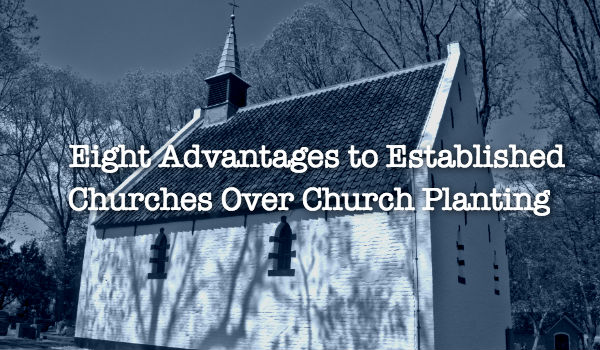In the last post, I talked about how awesome church planting was and the advantages to church planting over established churches. But, before you think church planting is the most amazing way to do ministry in the world, understand that it’s not the whole picture. There are many things that I never would have thought about before starting a church that I now understand are disadvantages to church plants.
1. Probably have an office
In the last article, I talked about how not having an office was an advantage, but it’s also a disadvantage. Coffee shops have open and closed hours. Sometimes the Wifi is spotty, and sometimes it’s really noisy. Also, the more you work at a coffee shop, the more you get to know people (which is a good thing). But, that also means you may get distracted from some of your task work (articles, sermon prep, website, etc). Work at home means that you have to have certain hours set up with your family where a closed door means daddy is at work. That’s tough to close the door to your little girl who doesn’t understand why daddy can’t just get up and play with her.
Also, having an office means you have a place to meet people. You can set up meetings and have people stop by your office at the church. Everyone knows where the church is, and you can set certain boundaries that are necessary and healthy for you and your family.
2. Existing infrastructure in support ministry
Most established churches have a system in place for their finances and legal issues. They have people who understand the system and keep everything in motion. Many times for a church plant, you’re still trying to find people to write checks, look over legal contracts, and take care of your books.
3. Consistent finances
If a church is established, it probably has a more easily forecastable financial picture. In a church plant, some months are high and some are low. It makes planning out a budget difficult for the long term.
4. Having your own building
When you have your own building, you can use it for whatever purposes you need. Many church plants rent space (like a school or theater), and in many of those spaces, they only get them for one day a week, Sunday. If you want to do something during the week (not at someone’s home), then it becomes really difficult to borrow space for a day somewhere else. And, if you’re able to do that, it’s not at the same place you meet on Sundays. So, if someone new comes to an outreach event during the week, it may be confusing for them to find your Sunday location.
5. Not dependent on outside resources
Many church plants depend on help from friends, family, denominational support, and other missions-minded churches. Most established churches don’t have to worry about finding support to take care of their finances for the year. They have an already built in system of financial expectations and dependence upon their members.
6. Existing church tradition
In the last article, this was seen as an advantage to a church plant. Even though I lean towards no tradition, it can still have some redeeming qualities if the tradition is centered around good things. For example, some churches are very concerned about biblical authority and teaching. That’s a good tradition. Other churches have a tradition of evangelism or God-centered worship. In a church plant, people don’t start there. They start from no tradition, and you have to build those things into the DNA of the church through teaching and discipleship.
7. Church programs already in place
When new people come to a church plant, they don’t always find programs for their kids or teenagers. Established churches have those already in place where people can immediately get plugged in.
8. Structured routine
Sometimes, it’s nice to have a structure and a routine about your week and schedule. Church planting is often like driving with a manual transmission. When you’re in a manual, you have to switch the gears yourself putting it in first to get momentum when you have some major new initiatives to start. Sometimes, you’ll go from things running smoothly in third gear and have to quickly shift back down to first again when someone steps down from a ministry, or you have to go back to the drawing board. The constant shifting from high gears to low can be exhausting. In established churches, it may feel more like an automatic transmission with the pieces already in place..
There are definitely advantages to both church planting and established churches. One is not better than the other. You have to find your calling where you fit in the process and where God has gifted and called you to serve.

